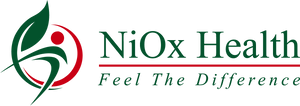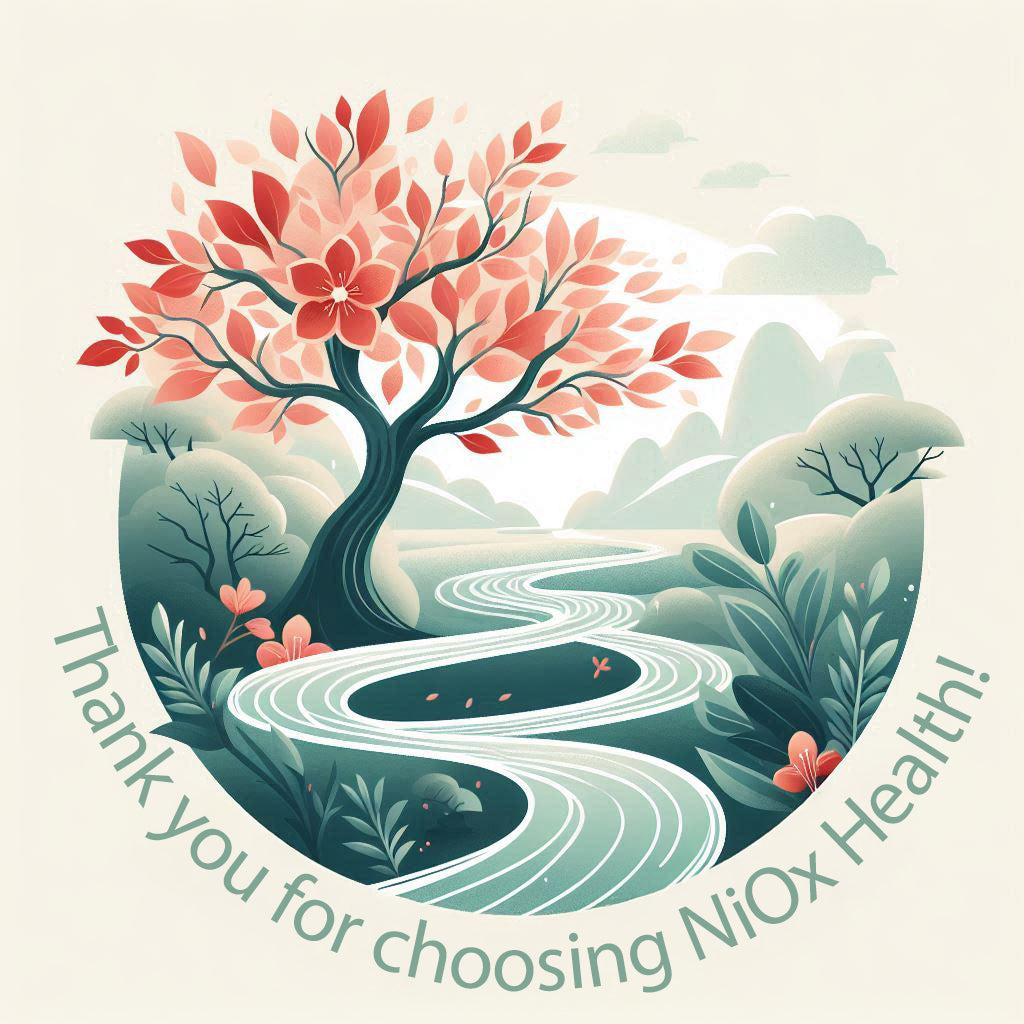Nobel Prize In Medicine Laureate
“I am convinced that Nitric Oxide can age-proof your cardiovascular system, keeping it much fitter than your chronological age would indicate. Repairing the damage wrought by cardiovascular disease without risky and often ineffective surgery had long been considered impossible. I was awarded the Nobel Prize in Medicine for making that thinking obsolete.
Now we know we can reverse cardiovascular impairment naturally—with the body’s internally manufactured ‘wonder drug’, Nitric Oxide.
Your body has four essential bodily processes: vascular tone, coagulation, inflammation and oxidation. Nitric Oxide therapy can make a lifesaving difference to your health by enhancing the positive and eradicating the negative in each of them.”
[Louise J. Ignarro]
In 1998, three scientists were jointly awarded a NOBEL PRIZE in MEDICINE for discovering L-arginine as a singling molecule for the production of Nitric Oxide in the body—effectively targeting the underlying cause of most Cardiovascular Disease.
Leading Scientists Agree
The world’s most published researcher on Nitric Oxide, world-wide, is German scientist, Dr Rainer Böger (pictured above), whose research discovered how to ‘turbo-charge’ the level and longevity of Nitric Oxide. His findings show that combining medicinal grade L-arginine and L-citrulline at a particular ratio extends the level and longevity of the Nitric Oxide from only a few minutes to over twelve hours.
This is important because instead of needing many doses per day to maintain an effective therapeutic level of Nitric Oxide in the blood (something you’ll not likely hear about from suppliers), with a sufficiently high quality product (there is none as high as Nitric Oxide Infusion) only two doses per day are required (one in the morning, one in the evening), so significant and sometimes dramatic results, as well as cost/savings, can be achieved.
Research Papers
- Kochupurackal P, et al. Nitric oxide:an antioxidant and neuroprotector. Annals of the New York Academy of Sciences. 2002; 962:389-401.
- Kumar CA, Das UN. Lipid peroxides, antioxidants and nitric oxide in patients with pre-eclampsia and essential hypertension. Med Sci Monitor. 2000 Sep-Oct; 6(5):901-7.
- Brown, M.D., Dengel, D.R., Supiano, M.A. Nitric Oxide Biomarkers are Associated with the Blood Pressure-Lowering Effects of Dietary Sodium Restriction in Older Hypertensives. Circulation (Abstract I). 1997; 96:I-539.
- Rosano, G.M.C., Tanina, G., Cerquetani, E., Leonardo, F., Pelliccia, F., Bonfigli, B., and Chierchia, F.L. L-arginine Improves Endothelial Function in Newly Diagnosed Hypertensives. The Journal of the American College of Cardiology (Supplement A). 1998; 31:262a
- Moncada, F., Palmer, R.M.J., Higgs, E.A. The Discovery of Nitric Oxide as the Endogenous Nitrovasodilator. Hypertension. 1988; 12:365-72.
- Pautler EL. The possible role and treatment of deficient microcirculation regulation in age-associated memory impairment. Med Hypotheses. 1994 Jun; 42(6):363- 6.
- Tarkowski E, et al. Intrathecal release of nitric oxide in Alzheimer’s disease and vascular dementia. Dement Geriatr Cogn Disord. 2000 Nov-Dec; 11(6):322-6.
- Ghigo E, Arvat E, Gianotti L, et al. Hypothalamic growth hormone-insulin-like growth facto-1 axis across the human life span. J Pediatr Endocrinol Metab.2000; 13 Suppl 6:1493-502.
- Fried R, Merrell WC. The Arginine Solution. New York, NY. Warner Books, 1999. Efron D, Barbul A. Role of arginine in immunonutrition. J Gastroentol. 2000; 35 Suppl 12:20-3.1
- Korting GE, Smith SD, Wheeler MA, Weiss RM, Foster HE. A randomized double-blind study of oral L-arginine for treatment of interstitial cystitis. J Urol. 1999 Feb; 161(2):558-65.
- Piatti PM, Monti LD, Valsecchi G, et al. Long term oral L-arginine administration improves peripheral and hepatic insulin sensitivity in type 2 diabetes. Diabetes Care. 2001 May; 24(5):875-80.
- Mohan IK, Cas UN. Effects of L-arginine-nitric oxide system on chemical induced diabetes mellitus. Free Radic Biol Med. 1998 Nov 1; 25(7):757-65.
- Heys SD, et al. Dietary supplementation with L-arginine: Modulation of tumor infiltrating lymphocytes in patients with colorectal cancer. Br J Surg. 1997 Feb; 84(2):238-41.
- Brittenden J, et al. Dietary supplementation with L-arginine in patients with breast cancer (> 4cm.) receiving multi-modality treatment: report of a feasibility study. Br J Cancer. 1994 May; 69(5):918-21.
- Khedara A, Kawai Y Kayashita J Kato N. Feeding rats the nitric oxide synthase inhibitor, L-N(omega) nitroarginine, elevates serum triglycerides and cholesterol and lowers hepatic fatty acid oxidation. J Nutr. 1996 Oct; 126(10):2563-7.
- Chen J, Wollman Y, Chernichovsky T, et al. Effect of high dose nitric oxide donor L-arginine in men with organic erectile dysfunction. BJU Int. 1999 Feb; 83(3):269-73.
- Wolf A, et al. Dietary L-arginine supplementation normalizes platelet aggregation in hypercholesterolemic humans. J Am Coll Cardiol. 1997 Mar 1; 29(3):479.
- Podjarny, E., et al. Pregnancy-induced hypertension in rats with adriamycin nephropathy is associated with inadequate production of nitric oxide. Hypertension. 1997; 29:986-991.
- De Gouw HW, Verbruggen MB, Twiss IM, Sterk PJ. Effect of oral L-arginine on airway hyper-responsiveness to histamine in asthma. Thorax. 1999 Nov; 54(11):1033-5.
- De Gouw HW, Marshall-Partridge SJ, et al. Role of nitric oxide in the airway response to exercise in healthy and asthmatic subjects. J Appl Physiol. 2001 Feb; 90(2):586-92.
- Fried R, Merrell WC. The Arginine Solution. New York, New York. Warner Books, 1999. pp 4-5.
- Stevens BR, Godfrey MD, Kaminski TW, Braith RW. High intensity dynamic human muscle performance enhanced by a metabolic intervention. Med Sci Sports Exerc. 2000 Dec; 32(12):2102-8.
- Heitzer, T., Just, H., and Munzell, T. Antioxidant Vitamin C Improves Endothelium Function in Chronic Smokers. Circulation. 1996; 94:9.
- Zeiher, A.M., Schachinger, V., and Minners, J. Long-Term Cigarette Smoking Impairs Endothelium-Dependent Coronary Arterial Vasodilator Function. Circulation. 1995; 92:1094-1100.
- Barbul A, et al. Arginine enhances wound healing and lymphocyte immune responses in humans. Surgery. 1990 Aug; 108(2):331-6; discussion 336-7.
- Braga M, Gianotti L Raedelli G, et al. Perioperative immunonutrition in patients undergoing cancer surgery: results of a randomized double-blind phase 3 trial. Arch Surg. 1999 Apr; 134(4):428-33.
- De-Souza DA, Greene LJ. Pharmacological nutrition a4er burn injury. J of Nutri. 1998 May; 128(5):797-803. Kirk SJ, et al Arginine stimulates wound healing and immune function in elderly humans. Surgery. 1993 Aug; 114(2):155-9; discussion 160.
- Bednarz B, Wolk R, Chamiec T, et al. Effects of oral L-arginine supplementation on exercised induced QT dispersion and exercise tolerance in stable anginapectoris. Int J Cardiol. 2000 Sep 15; 75(2-3): 205-10.
- Aikawa K, Yokota T, et al. Endogenous nitric oxide-mediated relaxation and nitrinergic innervation in the rabbit prostate: the change with ageing. Prostate. 2001 Jun 15; 48(1): 40-6.
- Fini M, et al. Effect of l-lysine and L-arginine on primary osteoblast cultures from normal and osteopenic rats. Biomed Pharmacother. 2001 May; 55(4):213-21.
- Sahin AS, Atalik KE, Gunel E, Dogan N. Nonadrenergic, noncholinergic reponses of the human colon smooth muscle and the role of K+channels in these responses. Methods Find Exp Clin Pharmacol. 2001 Jan-Feb; 23(1):13-7.
- Ohta Y, Nishida K., Protective effect of L-arginine against stress-induced gastric mucosal lesions in rats and its relation to nitric acid-mediated inhibition of neutrophil infiltration. Pharmacal Res. 2001 Jun; 43(6):535-41.
- Khattab MM, Gad MZ, Abdallah D. Protective role of nitric oxide in indo-methacin- induced gastric ulceration by a mechanism independent of gastric acid secretion. Pharmacol Res. 2001 May; 43(5):463-7.
- De Nicola L, Bellizzi V, Minutolo R, et al. Randomized, double-blind, placebo controlled study of arginine supplementation in chronic renal failure. Kidney Int. 1999 Aug; 56(2): 674-84.
- Reckelhoff JF, et al. Long-term dietary supplementation with L-arginine pre- vents age related reduction in renal function. Am J Physiol. 1997 Jun; 272(6 Pt 2):1768-74.
- Choosing a selection results in a full page refresh.







